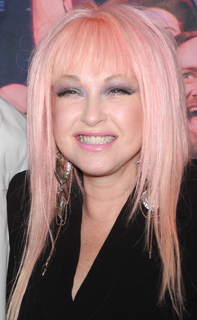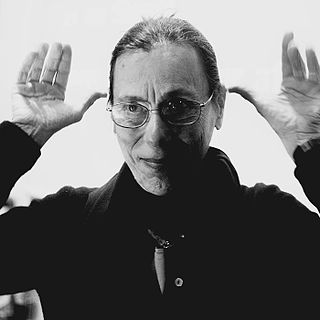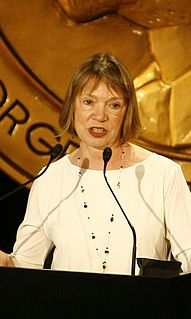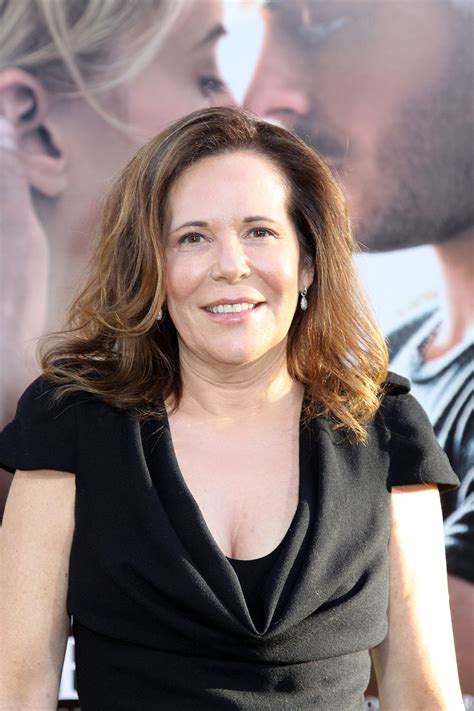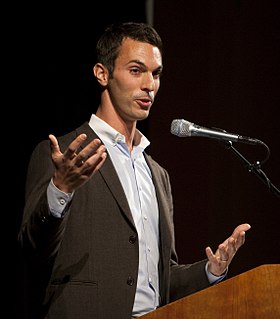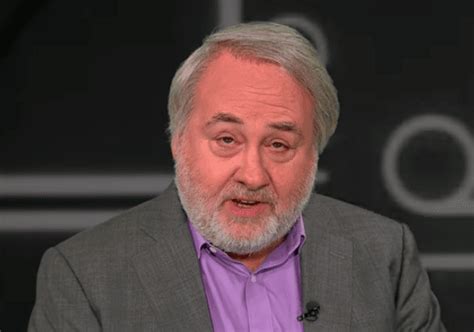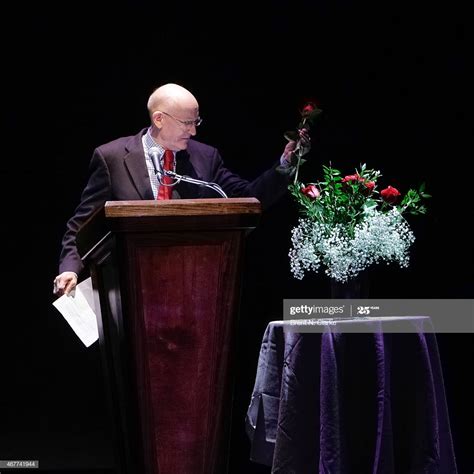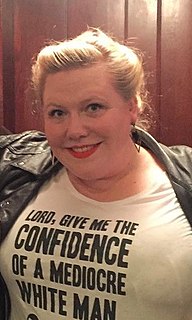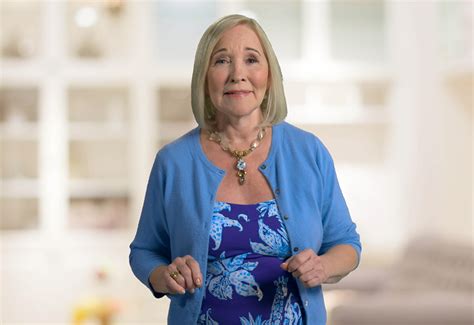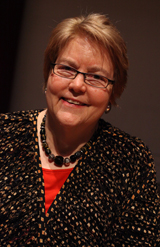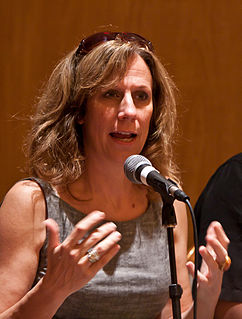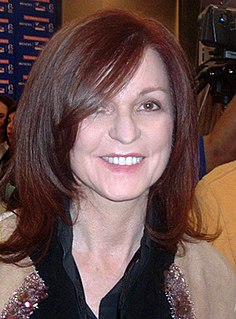Top 960 Feminism Quotes & Sayings - Page 16
Explore popular Feminism quotes.
Last updated on November 18, 2024.
First of all, feminism is not man-hating, not man-berating. It is not saying we are better. It is just saying we want the same opportunities, and we want to be able to make decisions on our own without being judged for them. We want the same freedom men have enjoyed over the years, so I think that's the place where we are. And it's completely not mutually exclusive at all for how you want to look, how you take care of yourself, how you want to be, what you want to look like.
I honestly feel that most young women out there are feminists - they just don't know that the word "feminism" describes the things they believe in. I wants to show young women that while feminists of the past did incredible work and that while the relative equality we experience now is due to their hard work, we still have a ways to go. We still have to fight for our rights and be vigilant in terms of keeping the rights we do have.
It is not a dirty word, "feminism." I just think that women belong in the human population with the same rights as everybody else... The problem is, "A feminist looks like this, or is like that." We are taught not to like ourselves as women, we are taught what we're supposed to look like, what our measurements are supposed to be. I never hear what measurements men are supposed to be. Just women.
Younger feminists actually care about stuff that came before them, the same way that I totally cared about and loved and felt so lucky to have access to the feminism that came before me. To have younger people take what me and my friends have done, and to say 'We have access to that, but we're going to put that through our own Internet generation filter and we're going to make it into something that speaks to us and is a lot smarter.'
We've been growing our readership every month, and we're kind of like, where are they all coming from? This is wonderful! And I think one of the best surprises was that you hear so often that young women don't care about feminism, that young women don't identify as feminists. But really, the majority of our readers are young women. So to see so many young people kind of get involved and really take to Feministing.com was a really exciting thing.
Maybe I'm a bad feminist, but I am deeply committed to the issues important to the feminist movement. I have strong opinions about misogyny, institutional sexism that consistently places women at a disadvantage, the inequity in pay, the cult of beauty and thinness, the repeated attacks on reproductive freedom, violence against women, and on and on. I am as committed to fighting fiercely for equality as I am committed to disrupting the notion that there is an essential feminism.
I was a young feminist in the '70s. Feminism saved my life. It gave me a life. But I saw how so much of what people were saying was not matching up with what they were doing. For example, we were talking about sister solidarity, and women were putting each other down. We were talking about standing up for our rights, and women weren't leaving abusive relationships with men. There were just so many disconnects.
I should say that feminism gave me permission to deal with my own emotional life and put it up front in certain ways, or use film as a way to examine, at that time, my own heterosexual experience. Lives of Performers was the beginning of that kind of investigation. But also, the film was influenced by the aesthetics and structures of experimental film as that was taking place at the same time. Hollis Frampton was a big influence on me at that time.
Here's the progression. Feminism won; you can have it all; of course you want children; mothers are better at raising children than fathers; of course your children come first; of course you come last; today's children need constant attention, cultivation, and adoration, or they'll become failures and hate you forever; you don't want to fail at that; it's easier for mothers to abandon their work and their dreams than for fathers; you don't want it all anymore (which is good because you can't have it all); who cares about equality, you're too tired; and whoops--here we are in 1954.
Hey, folks, look at all the damage that Bill Clinton has done to feminism. First, oral sex is not sex now. You got a Lewinsky, it isn't sex. And sexual harassment, you know what it used to be? All you had to have for sexual harassment was for a superior in your office to use his power to have his way with you, no matter whether you wanted it or not. Now that's out the window. Because we can't, of course, have Bill Clinton said to have engaged in sexual harassment. No way. Not gonna happen.
We're not saying that marriage, the thing, is now open to anyone of any gender. We are saying, when the word marriage is used in this particular context, this is what it means. And it was the same with "alternative facts." That was a big one. "Feminism" was a big one. And when people came to the "marriage" entry, because we live in the Internet age, they either immediately fire off an email to us saying they're horrified at how commie-pinko-liberal we are, or they fire off an e-mail saying thank you so much for speaking truth to power.
Most feminists in France came to feminism after '68 as a result of the hypocrisy they experienced in leftist movements. In these movements, where everyone believed there was going to be true equality, fraternity between men and women, and that together they were going to struggle against this rotten society, even there they noticed that the leftists, the militants, kept them "in their place." Women made the coffee while the others did the talking; they were the ones who typed the letters.
Ambitious young women today are taught to ignore or suppress every natural instinct, if it conflicts with the feminist agenda posed on them. All literary and artistic works, no matter how great, that document the ambivalence of female sexuality they are trained to dismiss as "misogynous." In other words, their minds are being programmed to secede from their bodies ... there is a huge gap between feminist rhetoric and women's actual sex lives, where feminism is of little help except with a certain stratum of deferential, malleable, white middle-class men.
I’m going to lie this one right on the line, right here, right now: I’m pro big pants. Strident feminism NEEDS big pants. Really big. I’m currently wearing a pair that could have been used as a fire blanket to put out the Great Fire of London at any point during the first 48 hours or so. They extend from the top of my thigh to my belly button, and effectively double up as a second property that I can escape to at weekends. If I were going to run for parliament, it would be solely on a platform of ‘Get Women In Massive Grundie’s’.
I think about how truly interesting and odd it is that when a woman marries, traditionally she loses her name, becoming absorbed by the husband's family name - she is in effect lost, evaporated from all records under her maiden name. I finally understand the anger behind feminism - the idea that as a woman you are property to be conveyed between your father and your husband, but never an individual who exists independently. And on the flip side, it is also one of the few ways one can legitimately get lost - no one questions it.
In 2001, we were told that the war in Afghanistan was a feminist mission. The marines were liberating Afghan women from the Taliban. Can you really bomb feminism into a country? And now, after 25 years of brutal war - 10 years against the Soviet occupation, 15 years of US occupation - the Taliban is riding back to Kabul and will soon be back to doing business with the United States.
I stand on the shoulders of giants that have gone before me, in terms of affording people like myself, women, the access to democracy, the vote, medical treatment, education, everything that I've been given. It's all been earned. Therefore I feel it's incumbent on me personally to just contribute something, to add to a collective voice that needs to be here right now, to build it up to a tipping point, to make the world aware that women's rights still have to be addressed and that the word 'feminism' has been devalued and needs to be reclaimed.
Some people ask: "Why the word feminist? Why not just say you are a believer in human rights, or something like that?" Because that would be dishonest. Feminism is, of course, part of human rights in general-but to choose to use the vague expression human rights is to deny the specific and particular problem of gender. It would be a way of pretending that it was not women who have, for centuries, been excluded. It would be a way of denying that the problem of gender targets women.
Though women may appear equal in some ways, and though we definitely have accomplished a lot, the fact is one in one women will still experience sexual violence at some point in their lives; a mere 17 percent of the U.S. Senate is female; women still only make 77 cents for every man's dollar - and that's not even taking into consideration global issues like sex trafficking or honor killings. We still need feminism, it's just not as easy for people - especially people in an incredibly privileged country like America - to always see that.
I think that blogging and the Internet has completely changed feminism for ever, I think. You know, it used to be, 10 years ago, if you wanted to have a strong, influential voice in the feminist movement, you really needed to be part of this New York/D.C. elite group of feminists, or part of a mainstream feminist organization. And now it's kind of an amazing thing that you can just start a blog and put your voice out there and build your readership.
It was only when I got to college that I realized that the rest of the world didn't run the way my world was run, and that there was a need for feminism. I'd thought it was all solved. There are people like my mom, clearly everyone is equal and it's all fine. Then I get into the world and I hear the things people are saying. Then I get to Hollywood and hear the very casual, almost insidious misogyny that just runs through so much of the fiction. It was just staggering to me.
Woman must come of age by herself. This is the essence of 'coming of age'-to learn how to stand alone. She must learn not to depend on another, nor to feel she must prove her strength by competing with another. In the past, she has swung between these two opposite poles of dependence and competition, of Victorianism and Feminism. Both extremes throw her off balance; neither is the center, the true center of being a whole woman. She must find her true center alone. She must become whole.
There were a few before me, there was a generation that started a little bit before me of women producers and Sherry Lansing, she was the first woman studio president, and she was really inspiring to me. I was inspired by other women in other fields, I was an adolescent in the 70s with the second wave feminism, and I got very inspired by that and felt like, you know what, there's no reason why I can't do this.
I see certain parallels between the debate over feminism where some women argue that women should not be forced to stay at home and take care of children [and debate about hijab]. And there are other women who are saying you are criticizing my decision as a free liberated women to stay home and take care of my children.
Radical feminist theorists do not seek to make gender a bit more flexible, but to eliminate it. They are gender abolitionists, and understand gender to provide the framework and rationale for male dominance. In the radical feminist approach, masculinity is the behaviour of the male ruling class and femininity is the behaviour of the subordinate class of women. Thus gender can have no place in the egalitarian future that feminism aims to create.
Feminism means to me aquality, actually. Women having equal rights to every thing the male population have in all aspects. Whether that's socially, or within the household or in the workplace. I don't find it a difficult word but it does have a lot of baggage. There's still a lot of work to be done in various parts of the world and society. If you look at where a woman's place was a couple of generations ago, there's been a huge development and progression. And it's an important queston to keep bringing up.
It's fair to say that there's something retrograde about putting the leader of Star Wars rebellion in the position of "slave in a bikini." There's no question that that's a fair point. But, it is true, and it's kind of remarkable, that at this point in our history, the slave girl, for a time in the bikini, is the one who chokes her captor with her bare hands and using the chain with which he bound her. That's powerful stuff. That's more retributive feminism than I think teenaged boys had ever seen.
I feel like we need to understand feminism more as a tool to mediate, counteract, to ultimately defeat patriarchy and restore balance to our government, our culture and our ways of thinking and structuring the world. I think we've had a very "masculine" sensibility for a long time, and I think we need to go back to the roots of social imbalance. I think we have to try to right that first, and from there and all these more pressing issues will follow.
I saw an article where the manager of the Pussycat Dolls, which is kind of this like striptease band, girl band, said, oh well, the girls are totally third-wave feminist. This is what third-wave feminism is about. Like you don't get to use that word. You don't get to say that something is feminist as a way to sell back sexism to women, as a way to further consumerist ideas.
I am a men's liberationist (or "masculist") when men's liberation is defined as equal opportunity and equal responsibility for both sexes. I am a feminist when feminism favors equal opportunities and responsibilities for both sexes. I oppose both movements when either says our sex is THE oppressed sex, therefore, "we deserve rights." That's not gender liberation but gender entitlement. Ultimately, I am in favor of neither a women's movement nor a men's movement but a gender transition movement.
Well, the movie isn't bad. For a while, I even told myself I liked it, even as it missed one mark after another. But in the end, it's shapeless and blandly apolitical, apart from its watered-down feminism. You see, Fey's Kim Baker - changed from Barker - transforms herself from a neophyte reporter, condescended to by male war correspondents, soldiers and Afghan officials, into a hard-charging political animal who speaks the language fluently and parties as hard as men. That's about as edgy as a sitcom.
Will his work survive? Alas, I worry that it will not. As an American liberal with impeccable credentials, I would like to say that political correctness is going to kill American liberalism if it is not fought to the death by people like me for the dangers it represents to free speech, to the exchange of ideas, to openheartedness, or to the spirit of art itself. Political correctness has a stranglehold on academia, on feminism, and on the media. It is a form of both madness and maggotry, and has already silenced the voices of writers like James Dicky across the land.
Feminism … I think the simplest explanation, and one that captures the idea, is a song that Marlo Thomas sang, 'Free to be You and Me.' Free to be, if you were a girl—doctor, lawyer, Indian chief. Anything you want to be. And if you’re a boy, and you like teaching, you like nursing, you would like to have a doll, that’s OK too. That notion that we should each be free to develop our own talents, whatever they may be, and not be held back by artificial barriers—manmade barriers, certainly not heaven sent.
Feminism is something I think about more when I watch the film, Christine, rather than when I was actually doing it, to be honest with you. But I do think it functions as a sort of interesting feministic critique, because you are seeing a woman who's resolutely incapable of behaving like the kind of woman that's acceptable at the time. She doesn't know how to play the game by everyone else's rules, and it makes you realize that actually there were rules that were functioning for a woman to be a careerist.
In the films I've done recently, I've been learning a little more about the side of myself that enjoys being a light. I remember when I used to dress in all black and you'd say. "Just be pretty, hold your head up, be proud. Be a pleasant person and don't cover yourself so much with darkness, your need to be a little crazy." Now I have nothing against anything I've been in before, because I love all sides of me, but I have been experimenting more with that lovely woman side. In this age of feminism, I would hate for the whole gentlemen and ladies things to be lost.
As the tide of feminism that crested two decades ago recedes and the old advance-and-retreat games of courtship return, "Pride & Prejudice" speaks wistfully to the moment. Elizabeth Bennet and Fitzwilliam Darcy are tantalizing early prototypes for a Katharine Hepburn-Spencer Tracy ideal of lovers as brainy, passionate sparring partners. That the world teems with fantasies of Mr. Darcy and his ilk there is no doubt. How many of his type are to be found outside the pages of a novel, however, is another matter.
In my freshman year of college, when a male professor asked the class, "Who here identifies as a feminist?" Only one girl raised her hand, and the rest of us just sat there. He basically just shamed us for the rest of the class?? - ??in a constructive way. He went around the room and said to each girl, "Why didn't you raise your hand? Feminism means men and women deserve the same rights, and that the balance in the world is currently tilted in men's favour.
When we trust the makers of baby formula more than we do our own ability to nourish our babies, we lose a chance to claim an aspect of our power as women. Thinking that baby formula is as good as breast milk is believing that thirty years of technology is superior to three million years of nature's evolution. Countless women have regained trust in their bodies through nursing their children, even if they weren't sure at first that they could do it. It is an act of female power, and I think of it as feminism in its purest form.
The full implications of feminism will evolve over time, as we organize, experiment, think, analyze, and revise our ideas and strategies in light of our experiences. No theory emerges in full detail overnight; the dominant theories of our day have expanded and changed over many decades. That it will take time should not discourage us. That we might fail to pursue our ideas - given the enormous need for them in society today - is unconscionable.
It's always been important to me to be very upfront with people about the fact that I do identify as a feminist because it's an opportunity to expose people to and educated them about the movement. Young women don't identify as feminist is because they don't know any feminists and don't have a comprehensive understanding of what it is, I gave them example and an opportunity to ask about it. And once they saw that I wasn't the embodiment of the negative feminist stereotype - that I was a normal teen girl just like them - I think they became more open to learning about what feminism really is.
I remember at the time - right before we started Feministing.com - doing a Google search for the term "young feminism" and the term "young feminist," and the first thing that came up was a page from the National Organization for Women that was about 10 or 15 years old. And it just struck me as so odd that there was all of this young feminist activism going on, but that it wasn't necessarily being represented online, that the first things in a Google search to come up were really, really old. I think to a certain degree we really filled a gap, and that's why we got such a large readership.
The fact that there's a more open discussion about everything from feminism to racism?...?I look at my two boys?...?this is their future I'm talking about. When I'll be long gone, it'll be them and their kids. I know that sometimes the darkest times are followed by the lightest. Sometimes bad things have to happen for good things to happen. At the very worst, we're having very open discussions, discussions about things we didn't even know f-king existed. I talk to my friends about it and they are absolutely shocked. They didn't even know.
A belief in feminism is a belief in personal freedom - the freedom to live a life free of fear of violence, to select a fulfilling career and be compensated fairly, to choose when to start a family, to marry whom you love. I want everyone, regardless of gender, to live a life free of restriction or fear, able to pursue their own personal brand of happiness and fulfillment.
Naturally my stories are about women - I'm a woman. I don't know what the term is for men who write mostly about men. I'm not always sure what is meant by "feminist." In the beginning I used to say, well, of course I'm a feminist. But if it means that I follow a kind of feminist theory, or know anything about it, then I'm not. I think I'm a feminist as far as thinking that the experience of women is important. That is really the basis of feminism.
When I talk about feminism and what I think the women's movement needs more of, it's not to detract from anything going on - I think everything going on is fantastic - but there's this missing element. I think we could learn from our detractors a little bit because I feel like they have a plan, a better understanding of things than we necessarily do. You can't change things if you don't understand the other people involved. And if you don't understand yourself, you'll never change.
The kind of organic wave, the way that waves move, and I'm not just talking about feminism, the way that a social movement might rise like a wave. It's harder to build any kind of wave now. Things are important to you and then they recede within a day. That's the only thing that keeps me from believing that there's going to be any one organic big wave; although the Americana (music) thing has been happening for a while.
Comics are reflective of what's going on in larger culture. Wonder Woman came to be in her position when women were first entering the workplace in numbers during the war. Then Wonder Woman had another rise in the '70s when Gloria Steinem latched on to her as an icon for the [feminist] movement. I think we're seeing another wave of feminism today, a fourth wave characterized by intersectionality and the internet. And I think it falls right in line that we would see another wave of superheroines coming to the fore.
Hillary Clinton said that white women did not vote for her because their husbands told them not to. You remember that? And we all said, "Wait a minute. What happened to feminism? Who are all of these docile women who are only doing what their husbands and boyfriends tell 'em to do?" But Hillary said that. White women didn't vote for her because their husbands didn't like Hillary and their husbands are telling them.
I think people resist feminism because they're scared. I think for women, they're scared of being picked on or of being called out. I hear from a lot of young women, you know, I don't want to call myself a feminist because I don't want to get in an argument with someone. And it's just not cool; like it's not a cool thing to be associated with. There's no benefit to saying that you're a feminist.
I actually felt like college was a much better and more comfortable environment for me than high school was. I think that can largely be attributed to the fact that I go to Barnard, which is a women's college that promotes women's leadership, a strong community and independence which are all things I obviously value. Before I got to school I think I expected most women there to identify as feminist, which I found wasn't necessarily the case, but I loved that I was able to have really intelligent and stimulating conversations with women about feminism no matter how they identified.
I did the Daily Show, and then I did Air America Radio, and I realized that I was lucky enough to have a job where I could get information to people. But those spaces weren't appropriate to then tell people what to do - they were corporate enterprises. My main job was to be funny, so I was trying to figure out, how can I combine all the things I love - comedy, feminism, calling out bullshit - into a creative space that other creative people would want to join in and help out?
The women's movement gave me a set of tools to think about things like my body and how people react to me and the way that my dating life was going. It's a very practical movement - yes, it's about issues like how we can get more women MPs elected, but it's also about how feminism affects things like your relationship.
And finally, there is another danger: the emergence of nonideological but very aggressive 'isms,' which are really quite new. Let me at least name them: We all care about human rights, but I am afraid of 'human rightism.' We all want to have a healthy environment, but I see the danger in environmentalism. To put it politically correctly, I admire the second gender, but I fear feminism. We all are enriched by other cultures, but not by multiculturalism. I am aware of the importance of voluntary associations, but I fear NGOism.
When we think about Islamic feminism, it is not just about women's rights. It's about a more progressive and tolerant expression of Islam in the world for all people. Women's rights is one aspect of it, it's not the end-all, but I also think that the women's issue is the strongest entry point that we've got to challenging extremism. You raise a woman's issue and you get the backs of the conservatives up against the wall faster than just about any other issue in our community. It's the fastest path that we've got to making change happen.
I have a guy friend who said to me, "Hey, you know it's strange, feminism is cool now." I think now people understand that being a feminist means everyone should be equal. What really shocked me was being in America during the Republican primaries. I haven't been exposed to that kind of thinking. I was so shocked that that kind of thinking exists in a modern world, and in a first-world country.
Feminism died in 1998 when Hillary allowed henchlings and Democrats to demonize Monica as an unbalanced stalker, and when Gloria Steinem defended Mr. Clinton against Kathleen Willey and Paula Jones by saying he had merely made clumsy passes, then accepted rejection, so there was no sexual harassment involved. As to his dallying with an emotionally immature 21-year-old, Ms. Steinem noted, 'Welcome sexual behavior is about as relevant to sexual harassment as borrowing a car is to stealing one.' Surely what's good for the Comeback Kid is good for the Terminator.
I mean, if it's worth a cover story that men and women are born different, what in the world must you believe and who got you to believe it?And I'm telling you: It's feminism and liberalism and all these things that seek to make everybody the same, to make everybody "equal," to have equal outcomes, make sure nobody's offended or humiliated, and to make sure nobody's really that much better than anybody else 'cause it isn't fair all these differences.
Young women know that something is off; they know that the world is a messed-up place. They know that the world is a sexist place because they've had experiences in their own life; they see things happening to their friends, to their parents. But because feminism isn't widely accepted, because they don't necessarily have access to feminist thought or to feminist groups, they don't necessarily have a language to put behind the feelings and the thoughts that they're having. And they certainly don't have a support system to let them know like, hey, that's okay; you're right, that is screwed up.


